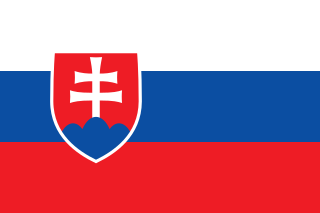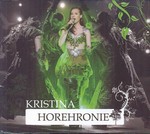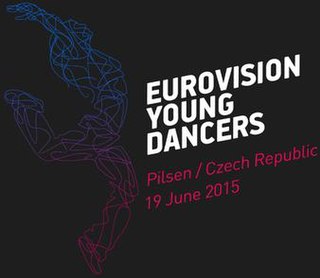
The Junior Eurovision Song Contest 2003 was the inaugural edition of the annual Junior Eurovision Song Contest for young singers aged eight to fifteen. It was held on 15 November 2003, in Copenhagen, Denmark. With Camilla Ottesen and Remee as the presenters, the contest was won by the then eleven-year-old Dino Jelusić, who represented Croatia with his song "Ti si moja prva ljubav" while second and third place went to Spain and the United Kingdom respectively. The next time that a country would win on its first attempt was Italy in 2014.

The Eurovision Young Dancers 1997 was the seventh edition of the Eurovision Young Dancers, held at the Teatr Muzyczny in Gdynia, Poland on 17 June 1997. Organised by the European Broadcasting Union (EBU) and host broadcaster Telewizja Polska (TVP), dancers from seven countries participated in the televised final. A total of thirteen countries took part in the competition. Latvia and Slovakia made their début while five countries decided not to participate. However, France, Switzerland, Norway and, for the first time Ireland, broadcast the event.

The Eurovision Young Dancers 1999 was the eighth edition of the Eurovision Young Dancers, held at the Opéra de Lyon, in Lyon, France, on 10 July 1999. Organised by the European Broadcasting Union (EBU) and host broadcaster France 3, dancers from ten countries participated in the televised final. A total of sixteen countries took part in the competition. Czech Republic made their début while host country France, Netherlands, Switzerland and United Kingdom returned. Estonia and Slovakia decided not to participate.

Slovakia has participated in the Eurovision Song Contest seven times, debuting in 1994. It had attempted to debut in 1993, but did not pass through the qualifying round. In the first three finals that Slovakia participated in, it placed no better than 18th, which it achieved in 1996. Due to poor results, Slovakia was relegated in 1995 and 1997, and eventually withdrew in 1999. The country returned in 2009, although it withdrew again within four years, having failed to qualify for the final every year since its return.

Nela Pocisková is a Slovak singer who represented Slovakia at the Eurovision Song Contest 2009 with Kamil Mikulčík. They failed to reach the Eurovision final.

Kristína Peláková, known professionally as Kristína, is a Slovak singer. She is best known for representing Slovakia in the Eurovision Song Contest 2010 with the song “Horehronie”. The song placed 16th in the semi-final with a total of 24 points. Kristína is one of the most popular female artists in Slovakia and the Czech Republic, and has toured both countries on multiple occasions.

"Horehronie" is a Slovak pop song, composed by Martin Kavulič with lyrics by poet Kamil Peteraj and performed by Kristina, and it was the Slovak entry at the Eurovision Song Contest 2010. It was performed together with backing vocalist Hana Servická and dancers Martin Mikulášek, Peter Živner, David Schwimmer & Slavomír Kolkovič. The song is an ode to the Horehronie tourism region. It became the winner of the Slovak national final Eurosong 2010 on 27 February, getting the largest share of the televote and coming second in the jury vote.

Gabriela Gunčíková, also known as Gabriela Gun, is a Czech singer. Her singing voice has been described as a cross between Sheryl Crow and Ann Wilson from the band, Heart. She was the runner-up of the second season of Česko Slovenská SuperStar and won the New Artist award at the 2011 Český slavík awards. Gunčíková was a touring vocalist of the Trans-Siberian Orchestra from 2014 until 2015. She represented the Czech Republic at the Eurovision Song Contest 2016 in Stockholm with "I Stand".

The Eurovision Young Dancers 2015 was the fourteenth edition of the Eurovision Young Dancers competition. The final was held in the New Theatre in Plzeň, Czech Republic on 19 June 2015. This was the first time that the Czech national broadcaster, Česká televize (ČT), had organised a Eurovision event. The event is aimed at young dancers aged between 16 and 21, competing in modern dances, be it solo or in couples, as long as they were not professionally engaged. Ten countries participated in the 2015 contest; with Albania and Malta making their début; Slovakia returning after an eighteen-year break; and Armenia, Belarus, and Ukraine deciding not to participate.

Sweden has participated in the Eurovision Young Dancers 15 times since its debut in 1985. Sweden has hosted the contest once, in 1993 and jointly won the contest in 2003. Sweden is also the only country that has participated in every edition.

Malta has participated in the Eurovision Young Dancers 2 times since its debut in 2015. On 7 July 2015, PBS Malta, which is responsible for Malta's participation confirmed that Malta will host the 2017 edition. However, in January 2017, the EBU announced that PBS had due to circumstances beyond their control been forced to cancel their staging of the competition. Nevertheless, they will still take part in the contest.

The Czech Republic has participated in the Eurovision Young Dancers 7 times since its debut in 1999. The Czech Republic has hosted the contest twice, in 2015 and in 2017.

Norway has participated in the Eurovision Young Dancers 13 times since its debut in 1985. Norway has hosted and won the contest once, in 2011.

Spain has participated in the Eurovision Young Dancers eight times since its debut in 1985, most recently taking part in 1999. Spain is the most successful country in the contest, with a total of five wins. The Spanish participant broadcaster in the contest was Televisión Española (TVE).

The Netherlands have participated in the Eurovision Young Dancers 10 times since its debut in 1985. The Netherlands have hosted the contest once, in 2003. In 1987, Belgium and the Netherlands participated together.

France has participated in the Eurovision Young Dancers 7 times since its debut in 1985. France has hosted the contest twice, in 1989 and 1999.

Poland has participated in the Eurovision Young Dancers 11 times since its debut in 1993. Poland has hosted the contest a record three times, in 1997, 2005 and 2013, and has won the contest three times. On 5 September 2016, Polish broadcaster Telewizja Polska (TVP) confirmed they would participate again in 2017.

The United Kingdom has participated in the Eurovision Young Dancers 7 times since its debut in 1985, most recently taking part in 2005. The UK has hosted the contest once, in 2001 and jointly won the contest in 1989.

Switzerland has participated in the Eurovision Young Dancers 9 times since its debut in 1985. Switzerland has hosted the contest once, in 1995.

The Eurovision Young Dancers 2017 was the fifteenth and final edition of the Eurovision Young Dancers competition. The final took place at the Prague Congress Centre in the Czech capital, Prague on 16 December 2017. This was the second consecutive time that the Czech national broadcaster, Česká televize (ČT), organised the contest. The event is aimed at young dancers aged between 16 and 21, competing in modern dances, be it solo or in couples, as long as they were not professionally engaged.




















